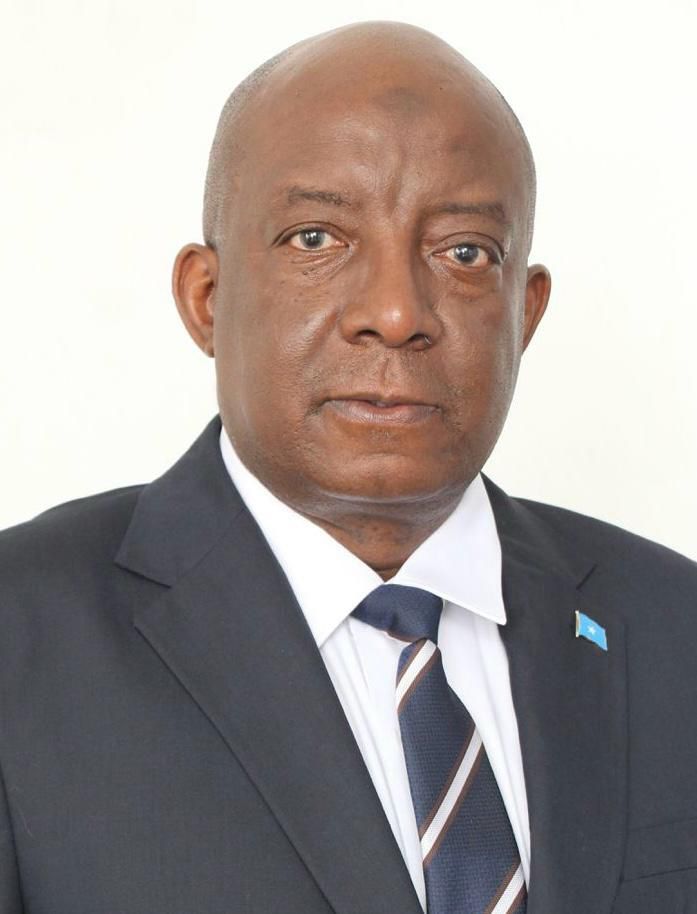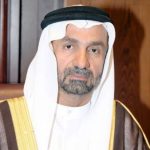Somali Maintains Major Milestones in the War Against Terror and State-Building
By Daud Aweis
The Federal Government of Somalia (FGS) has embarked on a transformative journey, making fresh efforts to eradicate the Al Shabab militants from the remaining pockets they control. In a historic display of leadership, the Commander-in-Chief and President of the Federal Republic of Somalia, H.E. Hassan Sheikh Mohamud, has personally led these operations at the frontlines, inspiring confidence and unity among the Somali people.
Since declaring a total war against Al Shabab in June 2022, Somalia has made significant strides. Major towns and strategic territories have been liberated, effectively dismantling the group’s influence. The government’s counter-terrorism strategy revolves around three key pillars: Robust military operations, financial disruption of the terrorists and combating extremist ideology. These comprehensive efforts mark a decisive shift in Somalia’s war against terrorism.
Military Triumphs and the Defeat of Terrorism
Al Shabab’s use of violence has long inflicted suffering on innocent Somali citizens. During the holy month of Ramadan, the group often targets civilians, particularly in the capital Mogadishu under the guise of Islamic religion. However, the resolve of the Somali National Forces and the determination of the people have ensured that for three consecutive years – 2023, 2024 and 2025 – Mogadishu remained free from significant terrorist attacks.
Desperate to regain relevance, the militants attempted a coordinated attack in the Middle Shabelle region of HirShabelle State. Yet, the bravery of the Somali National Forces, in collaboration with local defense forces, thwarted their plans. Even as the terrorists struck President Hassan Sheikh Mohamud’s convoy on March 18, 2025, in an effort to create fear and gain media attention, the President remained undeterred. He continued to the frontlines, emphasizing that the Somali spirit would not be broken no matter what.
During his mission at the frontlines, President Hassan Sheikh Mohamud addressed the troops, saying:
“Today, I stand before you without anyone else behind me as the President of the Federal Republic of Somalia. Your struggles and triumphs represent the victories of all Somalis – from Ras Caseyr and Ras Kamboni to Lowya Adde. This is also true of the Puntland regional forces combating ISIS. Their efforts reflect the strength of our entire nation. Together, we celebrate these victories for Somalia.”
He added that the Somali National Forces and the civil defence forces against the Kharijites (the terrorists) is a victory for all Somalis.These words resonated across the country, further galvanizing the people in their support for the government’s efforts.
Overwhelming Public Support and the Role of Civil Defense Forces
One of the most remarkable aspects of the counter-terrorism campaign has been the involvement of local communities. Recognizing the shared goal of peace, thousands of Somali volunteers have joined the civil defense forces. Their participation has expedited the liberation of towns and villages. The unity between the SNA and local defense forces has demonstrated that when a determined people stand together, terrorism cannot prevail.
International partners have also played a critical role, providing military aid, intelligence support, as well as precision airstrikes. Recent operations in Jilib, Middle Jubba region, have inflicted heavy losses on the terrorists’ leadership. Airstrikes targeted key operational hubs, forcing the terrorists to scatter and abandon their strongholds. Reports indicate that some leaders fled with their families, highlighting the growing disarray within the militant ranks.
In light of the recent operation in jilib, the government has issued clear warnings to civilians, urging them to avoid terrorist-occupied areas as they remain legitimate military targets. And as has been the norm and emphasizing its commitment to human rights, the Somali National Forces continue to adhere to international humanitarian law, Islamic law, and Somali customary rules of warfare.
Somalia’s Diplomatic and State-Building Achievements
On March 23rd, during his first official visit since being elected Chairperson of the African Union Commission, Ambassador Mohamud Ali Yousuf visited Mogadishu, where he expressed strong support for the Federal Government of Somalia’s fight against terrorism. He emphasized his belief that Somalia is on the brink of completely eliminating terrorist groups from the country.While significant progress is being made on the frontlines, it is important to recognize that, despite the immense challenges Somalia faces, the Federal Government has achieved major milestones in state-building, setting the country on a positive path toward peace, stability, and prosperity.
While the military campaign has garnered significant victories, Somalia has also registered historic diplomatic and economic milestones.
1.Lifting of the Arms Embargo
After three decades of restrictions, the United Nations Security Council (UNSC) voted to lift the arms embargo placed on Somalia in December 2023. The embargo was instituted after the country plunged into civil war following the fall of the military regime in 1991. This milestone was a shot in the arm for Somalia’s war against terror and reflects the international community’s confidence in Somalia’s progress, allowing the nation to acquire advanced military equipment necessary to defeat terrorism.
The UNSC also retained restrictions against trade and supply of arms to the Al Shabaab, further dealing a blow to the terror group. The Federal Government of Somalia has also kept its promise of ensuring that weapons in its arsenal do not fall into the wrong hands.
2-Debt Relief
In the same year, Somalia was granted debt relief through the International Monetary Fund (IMF) and World Bank’s International Development Association’s Highly Indebted Poor Countries (HIPC) Initiative. The successful completion of economic reforms enabled Somalia to clear 4.5 billion Dollars in external debt. The move was a reward and recognition of Somalia’s efforts to reduce external debt from 64% of its GDP in 2018, to just 6% in 2023.
This debt relief has majorly shifted Somalia’s economic priorities. Focus has now moved from servicing debt, to building the nation and socio-economic development. This has also opened new avenues for domestic and foreign investment in the country. Somalia seeks continue on this same trajectory, improving the livelihoods of its citizens and employing forward-looking strategies for longterm, sustainable development.
3-Joining the East African Community
Somalia’s accession as the eighth member of the East African Community (EAC) heralded a new era of regional integration. This membership facilitates trade, infrastructure development, and regional collaboration, further promoting economic growth and stability. Somalia has enjoyed the support of East Africa’s Heads of States in the war against Al Shabab. It has also learned key lessons as it embarks of expansion of its democratic space and other social, politcal and economic reforms.
Somali citizens are already reaping the benefits of integration as well as an expanded market for their goods and services. The East African region boasts a population of over 200 million people – a ready market for trade – as well as cultural and people-to-people exchanges.
4-UN Security Council Membership
In a remarkable achievement, Somalia secured a non-permanent seat on the UN Security Council. Somalia was elected to represent the East African region unopposed, garnering 179 votes in the 193-member assembly – a major show of global confidence. This two-year membership allows Somalia to take up its position on the global stage and contribute meaningfully to global peace and security while advocating for African and regional interests.
Somalia’s UNSC membership is also a tremendous esteem booster for the country and its citizens, shedding the previous image of strife, turmoil and maldevelopment.
5-Road to Universal Suffrage Elections in 2026
Somalia continues on its path to democracy. The country is preparing to hold its first universal suffrage elections. This is set to begin with local government elections in 2025, followed by state-level elections, culminating in general elections in 2026. This historic move is set to further empower the Somali people in shaping their country’s future.
The road to these one-person, one-vote elections has not been without its challenges, but as with every other venture that the Federal Government of Somalia and its citizens have taken on, it is not impossible. In October 2024, political leaders agreed on a framework that pave way for the historic elections. These elections will be a departure from the previous indirect system where only a minority had their say over the affairs and administration at local, state and national levels of government. It is time that Somalia steps into the 21st Century and allow the majority to have their way and the minority to have their say.
A Vision for Lasting Peace and Prosperity
Three years into President Hassan Sheikh Mohamud’s leadership, the people’s resilience and determination are evident. With one year remaining in the current administration’s term, the anticipation for continued progress is palpable. Somalia’s success is not just its own; it is a beacon of hope for the region. A stable Somalia means a safer Horn of Africa and a more secure world. The government’s unwavering commitment to defeating terrorism, strengthening institutions, and advancing development has shown that no challenge is insurmountable.
Somali people stand united and the message is clear: Somalia’s future is one of peace, prosperity, and dignity. The nation is no longer defined by its struggles but by its triumphs. And the world watches with admiration as Somalia continues to rise out of the ashes of its tumultuous past.
The author is Somalia’s Minister for Information, Culture and Tourism,
H.E. Daud Aweis





